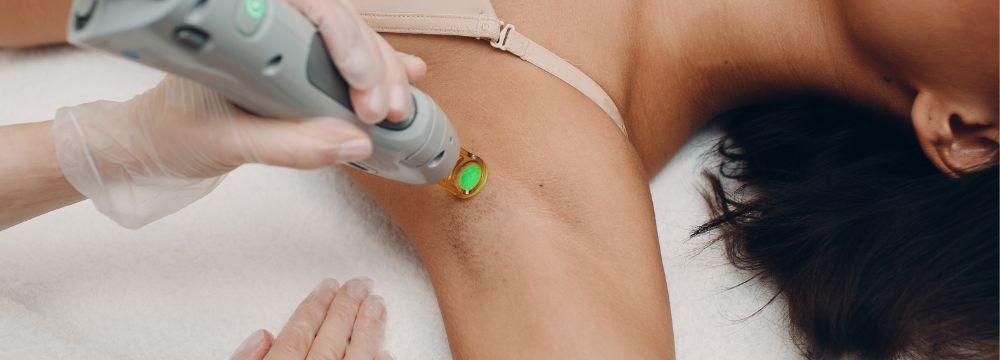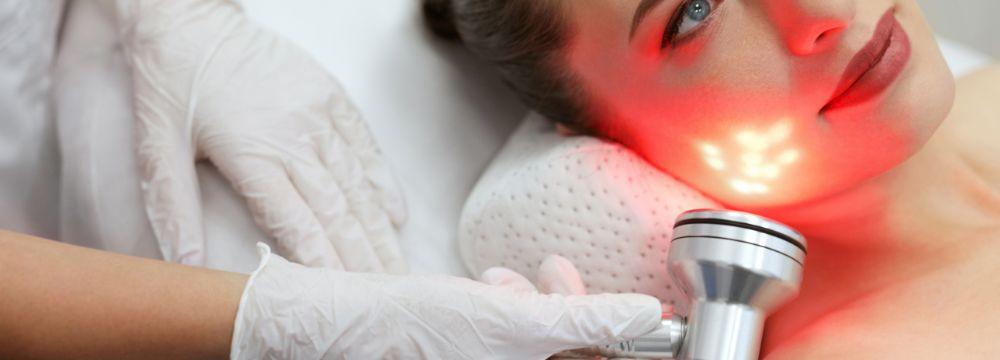Three Proven Compounds to Tackle Dry and Sensitive Skin
You are not alone if you are struggling with dry or sensitive skin. Many, if not most, people will have dry skin at some point in their lives, and it is estimated that more than half of all people will experience abnormally dry skin, otherwise known as xerosis. Because it is such a common problem, you may think it is not worth seeing a dermatologist, but you may be mistaken. Sure, mildly dry skin can be treated with cream or lotion, but there are tricks and products that your dermatologist can recommend that may help heal and replenish the moisture in chronically dry skin. Further, if an underlying condition causes your dry skin, medical therapy may be necessary.
Let’s review a few products beyond essential moisturizers for tackling dry skin.
Hyaluronic Acid
Hyaluronic acid is a natural substance found and produced in our bodies. This vital fluid keeps our joints lubricated, our skin bouncy, and our eyes moist. This fascinating substance can bind over a thousand times its weight in water. That’s right – it can attract and retain lots of water for your skin to use. Hyaluronic acid is a real asset when we think about strategies for boosting skin cells’ moisture capacity. Remember: aging skin loses its natural hyaluronan (the molecule contained in the acid), and this reduction can contribute to dry skin as we get older.
When used in creams and lotions, hyaluronic acids can help tissue retain moisture and hydrate dry skin from the outside. This is why it is such a mainstay in preventing and treating dry skin – it is already doing much of the heavy lifting, providing needed moisture to our bodies.
Topical hyaluronic typically does not cause irritation or allergic reactions and is very well tolerated by most people. So, is hyaluronic acid in creams or lotions sufficient for improving dry skin? The answer depends on just HOW dry your skin is. Hyaluronic acid in a topical formulation might do the trick if it’s just mild dryness. The problem is that it only hydrates the uppermost layers or the stratum corneum. This larger molecule cannot penetrate the skin’s deeper layers to hydrate from the inside out.
…but there are other ways that we can benefit from HA. Another exciting aspect of hyaluronic acid is its mode of delivery, which can be topical, oral, or injectable (like fillers).
To target these deeper layers- consider combining topical hyaluronic with an oral form of the substance – such as in a pill, tablet, or gummy. This way, the hyaluronic acid also reaches the skin and other tissues from the inside out!
Of course, no conversation can be complete without discussing hyaluronic acid fillers. These fillers are very predictable, safe, and effective. A comprehensive filler regimen can introduce hyaluronic acid to the skin for longer-term benefits while also plumping and shaping areas that need it.
Ceramides
Ceramides are also innate to our skin’s scaffolding; these are like the building blocks between cells that give them structure and help cells stick together. You can think of them almost like glue or binders between skin cells; their bond is strong enough to prevent this barrier from breaking down. Ceramides are lipids, and they comprise over 30% of our skin’s overall makeup. A common ingredient in many moisturizers and lotions, ceramides can improve this vital barrier function of the skin, improving hydration and strength. Dry skin can become weak, and leaving it untreated can compound problems; we can become prone to eczema, dermatitis, and infections. Prevention is vital to avoiding skin inflammation – so look for ceramides as a critical ingredient in your everyday moisturizer.
Lactic Acid
Lactic acid is an essential compound for preventing the buildup of dead cells on the skin’s surface. Our skin cells naturally shed, falling off as they complete their lifecycle. This process requires cells underneath, in the epidermis, to push upward, causing the dead cells on the stratum corneum to slough off. Sometimes, this process can get backlogged. When dead skin cells build up on the surface- this can create a dull and dry appearance. To help the turnover process, lactic acids can rescue our skin by revealing moist, youthful layers hiding underneath. In addition, lactic acids help improve texture and reduce the appearance of dark spots.
Lactic acid can be found in small amounts in many beauty products. For over-the-counter or lower-potency lactic acid products, look for this ingredient in everything from body lotions to facial serums and scrubs.
It can also be applied in higher-strength formulations prescribed by a dermatologist. If you are suffering from dehydrated skin or xerosis, it may be time to talk to your doctor about adding high-strength lactic acid to your skincare routine. These medicated formulations can be a game changer for chronic dry skin that does not improve with daily applications of lotions and creams.
You may also be surprised to learn that lactic acid is an excellent building block for chemical peels. Many peels combine lactic acid with other acids (such as alpha-hydroxy) alongside botanical ingredients to formulate high-strength practical approaches to remove the outermost skin layers. Be careful when considering higher-strength formulations, and talk to a professional before using these products. High-potency lactic acid could irritate the skin, causing unwanted side effects. It is also essential to always wear sunscreen when using products that contain lactic acid because the skin is more sensitive to UV rays. Mind you, it’s a good idea ALWAYS to wear sunscreen, especially when lactic acid is used.
Using these products appropriately can be a great first step in repairing any damage to facial skin. However, you may also wish to consider the next steps in skin care, including chemical peels, IPL, and laser treatments for maintenance and improvement.
To schedule a consultation with one of our dermatologists, contact us.




